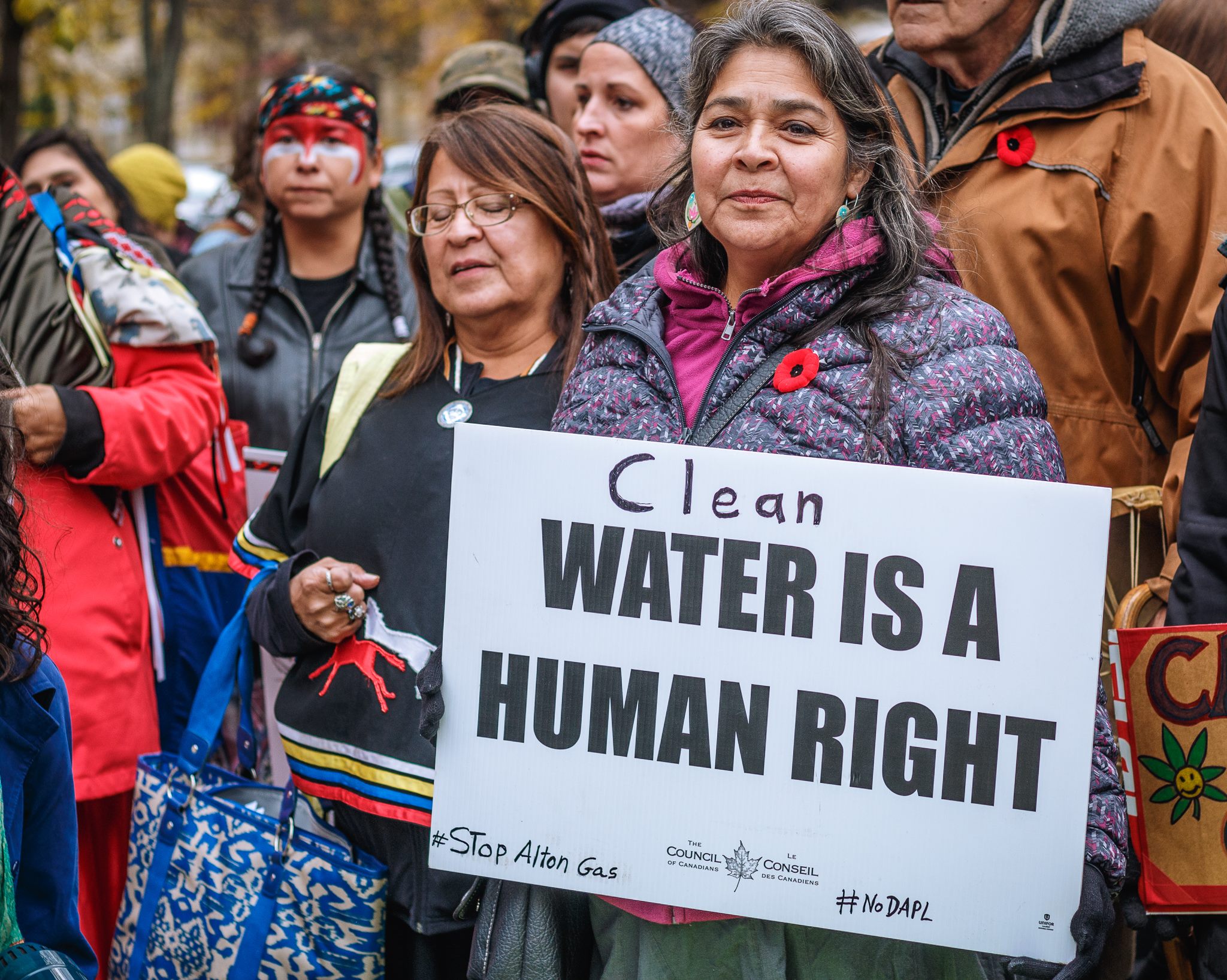
5 things to know about Winnipeg’s big sewage problem
115 billion litres, 70 years to fix, $5.5 billion in lawsuits
I am a grandmother, water protector and high school teacher from the Mi’kmaq Nation, in what is currently known as Nova Scotia, Canada. I have been working to protect our waters and lands from colonial control and dangerous resource extraction my whole life. When Europeans arrived in Mi’kmaq territory, we never ceded lands or accepted defeat, though for the last 450 years Canada has been constantly assaulting our people, invading our lands and communities and stealing our resources.
Not far from where I live, Pieridae Energy is planning to build the Goldboro LNG export terminal, which is intended to ship liquefied natural gas to Germany. The country’s chancellor, Olaf Scholz, plans to visit Canada next month, perhaps to announce a new LNG deal. This is yet another assault on Mi’kmaq lands, this time done in the name of “green” energy and “helping” the energy crisis in Europe. Pieridae is an expert in greenwashing. I’m writing today in the hopes that Canadians will see through the company’s lies.
There are three major risks that LNG ports pose to the Mi’kmaq: risk to the safety of our women and girls, risk to the lands we have lived on since time immemorial and risk to the planet’s ability to sustain life.
The Goldboro LNG export project would include a massive work camp — a complex of temporary lodging for workers, also known as a man camp — that could house up to 5,000 workers while the export facility is being built. These man camps are well-known for their link to increased violence, human trafficking and the disappearance of Indigenous women, girls and two-spirit people. LNG can’t be considered “green” and “ethical” if it brings violence to our people.
So much of Mi’kmaq territory has already been gobbled up by companies and governments looking to make a quick buck, leaving our forests in ruin, our oceans unable to support the fish we have relied on for millennia and our air full of carcinogenic pollution.
As a grandmother, it’s my duty to protect these lands for future generations, and I implore you to understand that LNG has real impacts on our local environment and our ability to live on this land as we always have.

The Goldboro LNG export facility is being proposed and negotiated without the Free, Prior and Informed Consent of the Mi’kmaw Nation. This is a direct violation of our human rights and Indigenous Rights as described by the UN Declaration on the Rights of Indigenous Peoples, a declaration that both Canada and Germany signed.
Finally, beyond Mi’kma’ki, the Earth is in crisis. Climate change is threatening lives and livelihoods on this planet. We cannot pretend any longer that extracting and burning new fossil fuel resources is a solution to anything — not the energy crisis in Europe, not Germany’s fossil fuel dependence, not Canada’s economic woes. Even the International Energy Agency has said there can be no new gas projects if we are to have a hope at limiting global warming. For the sake of our planet and ourselves, we must find new ways to solve today’s energy problems.
And there are other more affordable, job-creating options — why not invest in offshore wind or solar power? It would be better for our planet, create jobs and position Canada as a leader in renewable energy, instead of confirming our global reputation as polluters.
Politicians talk a lot about reconciliation. If the federal government is serious about reconciliation, it must reject East Coast LNG export projects that violate human and Indigenous Rights, and will bring violence to our lands.
Join me in urging Ottawa to finally walk the talk — put Indigenous Rights above the interest of another money-hungry fossil fuel company. Say no to gas expansion and protect Indigenous Rights and our lands.
With files from Robin Tress
Get the inside scoop on The Narwhal’s environment and climate reporting by signing up for our free newsletter. On a warm September evening nearly 15...
Continue reading
115 billion litres, 70 years to fix, $5.5 billion in lawsuits

Climate change, geopolitics and business opportunities power a blue economy

10 billion litres of sewage are dumped into Winnipeg’s lakes and rivers each year. Some...
